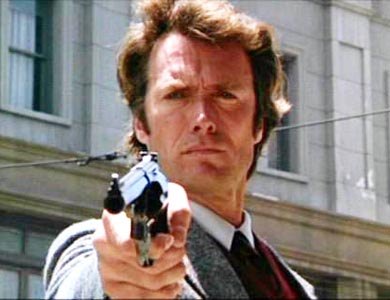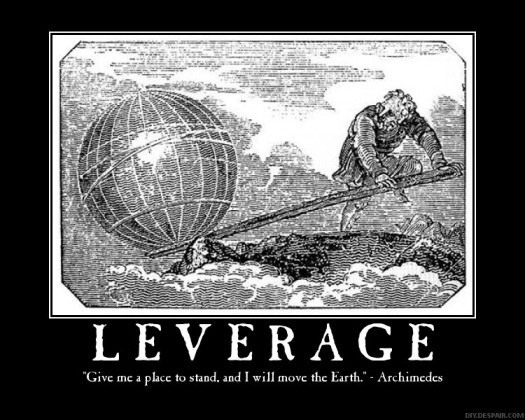Taking an ASEAN-centric perspective of the world is necessary and relevant. This is particularly so for the people who live in Southeast Asia.
It is in this sense that I find Simon Tay's book, Asia Alone: The Dangerous Post-Crisis Divide From America, compelling.


 .
.
At the risk of an unfair summation, Tay's core proposition is that whilst both the United States and China perform their delicate dance at many levels, both nations need to take cognizance of the virtuous leveraging effect that ASEAN can play as a middleman of sorts.
One analogy of Tay's thesis is that ASEAN is the hub while China is a spoke.
The other analogy that strikes me, being Malaysian (of course) is the idiom Gajah sama gajah berjuang, pelanduk mati di tengah-tengah.
In other words, Tay is mindful that ASEAN is a stakeholder in the tense jostling between the U.S. and China. More than that, Tay is voicing an ASEAN perspective and makes a case that ASEAN has a pivotal role to play as a positive interface between the U.S. and China.
I dare say that ASEAN has hitherto engaged and, understands the nuances of both the U.S. and China at every level - cultural, political, social and, most certainly, economic.
That said, there are a few observations that may be relevant.
(I will continue in a bit. Got some things to do first. *sigh*)
Everyone knows Samuel Huntington's thesis about the clash of civilizations.
It is in this sense that I find Simon Tay's book, Asia Alone: The Dangerous Post-Crisis Divide From America, compelling.



At the risk of an unfair summation, Tay's core proposition is that whilst both the United States and China perform their delicate dance at many levels, both nations need to take cognizance of the virtuous leveraging effect that ASEAN can play as a middleman of sorts.
One analogy of Tay's thesis is that ASEAN is the hub while China is a spoke.
The other analogy that strikes me, being Malaysian (of course) is the idiom Gajah sama gajah berjuang, pelanduk mati di tengah-tengah.
In other words, Tay is mindful that ASEAN is a stakeholder in the tense jostling between the U.S. and China. More than that, Tay is voicing an ASEAN perspective and makes a case that ASEAN has a pivotal role to play as a positive interface between the U.S. and China.
I dare say that ASEAN has hitherto engaged and, understands the nuances of both the U.S. and China at every level - cultural, political, social and, most certainly, economic.
That said, there are a few observations that may be relevant.
(I will continue in a bit. Got some things to do first. *sigh*)
Everyone knows Samuel Huntington's thesis about the clash of civilizations.
Some may recall Martin Jacques's scenario of "when China rules the world".
For us, in ASEAN, our biggest fear is not so much hegemonic projections by either the U.S. or China.
No, I submit that our biggest fear must be that of becoming irrelevant in a multi-polar or, worse still, bi-polar world.
The fear is not so much political irrelevance so much as economic irrelevance.
We risk becoming economically irrelevant if the U.S. and China enters into economic amity. Thankfully, that "IF" is a big and unlikely one given the significant relationship gaps between the two giant nations.
In this regard, it is not only ASEAN that is thankful, so would be the Europeans and South Americans.
That said, many are aware that the U.S. is the "yang" force aggressor in the China-U.S. relationship. It is the same story between the U.S. and just about any other nation.
At 200+ years of age, the U.S. is a relatively young country. Wealthy (still) and misguidedly dogmatic and doctrinal. What annoys everyone is that the U.S. wants us all to photocopy and imbibe the Declaration of Independence and the U.S. Constitution.
Their world view has vestiges of sanctimony. They freely admit their faults but doggedly maintain that in an imperfect world, their model of values comes closest to the ideal.
This value system finds some degree of expression in the heroic ability of John Wayne to discharge a single shot from a Colt 45 and bring down half a dozen Native American Indians, the ability of one Bruce Willis to turn the tide against a well-armed group of terrorists, the courage and recklessness of one Clint Eastwood to defy convention and rules to bring down the bad guys with his trusty Magnum gun (with the classic phrase, "Make my day").
 .
.As the rest of the world are entreated with this message, we are also treated to the wonders of Cola drinks, popcorn and jeans.
Many believe that this form of pop culture carries an ideological thread that is exported globally to widespread acclaim.
What exasperates the U.S. is that after the visual and audio imagery ends, the rest of us walk away from the cinemas back into our dictatorships and corrupt practises!!!
Of course, I have been simplistic in painting the foregoing. But, I believe there is a grain of truth in it.
How else do we explain the general support of the U.S. populace toward the Invasion of Iraq and the War in Afghanistan?
How else can we explain why even Obama, who is definitely more enlightened than Bush Jr. continue to subscribe the the Occupation of Iraq and Afghanistan?
Simon Tay's proposition is, if I may say, a reminder that being a little cluster of nation states, ASEAN should see the abrasive U.S. worldview as an opportunity for the little guys to use themselves as bridges between the U.S. and larger countries like China and, even india and, possibly even the Middle East.
This would be a strategic coup and an astute mode of tactical leveraging.
 .
.And, what would be the dividend for ASEAN's offer of being a bridge?
Okay, world peace and regional peace is *yawn* the obvious public line.
The real intent should be to gain economic benefits.
That would make the endeavour worth the effort.
2 comments:
2/2
And that could be the question to start our own ponder of Asean, and our own, positioning into the first half of this century.
As we try to do so, we are however reminded that Tay's home country was the first Asean member to break up the bloc through a series of quietly-executed bilateral agreements with the US, then Japan and so on, thereby adding more traction to its leverage as broker to both west and east in entrepot trade of Southeast Asia, even as it diminished the importance of Asean of which it is a member as a trading entity per se.
For that, it probably has to thank the far-sightedness of our Umno politicians whose fertile policies helped catapult our best brains to leave our own country in disgust so that they ended up helming the best positions in the region for transport and logistics, the key to being a trading hub.
Those politicians probably thought transport and logistics are only motor vehicles and ports. No, just as AirAsia is not about aeroplanes but about a reservations software, they are actually optimization and queuing theory, the stuff that's taught at the maths dept of places like universiti malaya.
Coming back to Asean, it will primarily be a raw-materials hinterland for East Asia. Even today, we are beholden to China for taking up twelve percent of our export trade, and the surface hasn't yet been scratched, looking at her inland masses.
But can we be our own force to reckon with, masters of our own destiny, riding the waves of change that is changing the global landscape?
It depends on leadership, holding fast to clear and candid views about our precarious position, and moving with confidence over set parochial preferences to carve a real deal for the people. No more the nonsense, spin, siphonage and chatterings of those who know nuts about how the real world works.
Frankly, the nascent edge we find ourselves in economic irrelevance today has been brought about by the intemperate and mad political policies we have used to 'done' ourselves in.
And it seems they are still doing it, oblivious to the fact that it is not Asia alone we should be debating.
Unless we want to count some banana republics as our role models, it's just us alone.
And this just to weigh down the above post before it flies into blogosphere's trashbin:
http://is.gd/dnQNT
Tay's method is after all Western. Decomposition based on linear regression originating from Greek thought which started with a sense of personal agency fueled by individual curiosity, as opposed to Oriental thought which is based on a sense of collective agency nourished by the primacy of social relations above the self wrapped in a holistic viewpoint of everything under the sky. Well, Nisbett said as much.
That would explain why Tay had thematically not extended his thesis beyond his three options of an Asian century, an Asian bloc and a Global Asian option in order to consider Oriental resurgence based on the other notion of rolling back history inasmuch playing a catch-up race.
In the latter regard, China has been described as merely working to reinstate her former preeminence as richest nation during one era when her ships had sailed the world, some said even before Columbus, but holistically from a humanity viewpoint, without the excesses of such bodies as the British East India Trading Company.
In financial circles, she could very well achieve that richest nation tomorrow in one stroke if she just revaluates her currency...but that itself would bring unnecessary domestic tensions so far deftly defused by sharp counter-cyclical economic measures. If anything, her economists have shown prowess in using western methods to manage China's financial performance.
But then again each situation has its own self-compensating mechanism. Just as China and other east-Asian states have nucleated global economic action, the present problems of the US and European Union have also made them see for the first time the multilateral integration of the world brought about by the same globalization forces which their multinationals had unleashed.
One therefore suspects the western world is becoming more oriental just as the eastern world is becoming more occidental.
There will probably be a meeting point of equilibrium where methods and viewpoints will flux towards achieving operational objectives somewhere between the self-now and the societies-later. Whether this will take linear or matrixed form remains to be seen.
Post a Comment